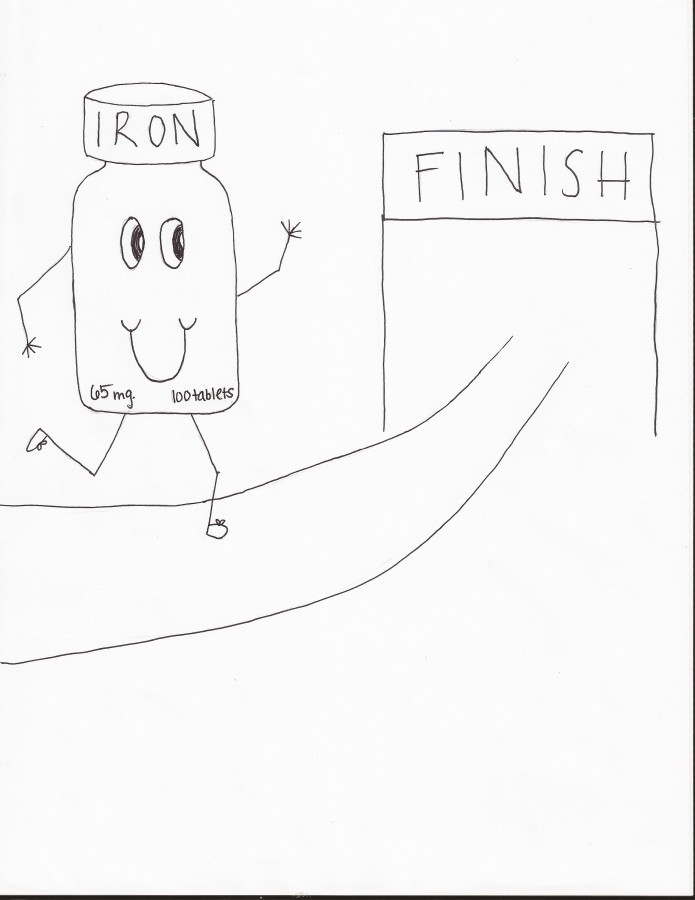For runners, iron is not just an element to learn about in chemistry, it can help enhance performance.
Iron supplements can help teenage runners who suffer from iron depletion, which is a condition where a person has low levels of a protein called ferritin in the blood. According to the Runners Connect website, “almost 56 percent of joggers and competitive runners suffer from an iron deficiency.” The number is much higher for teen runners because they need a higher amount of iron as they mature.
“Teenage females probably have [iron deficiency] the worst, but almost all teenage runners have some form of iron deficiency. It’s pretty rare that I see somebody who is normal,” Amy Baltes, nutritionist and personal trainer at FitNut4Life, said.
Iron is important because it transports oxygen to your muscles. When running, the muscles need more oxygen to perform at a higher level. Without a healthy amount of iron in the bloodstream, runners will not be able to perform at their normal level and will feel very fatigued.
“If you have a person who’s having a lot of difficulty running, where they can’t make it through an entire workout or where they’re having stomach issues, they absolutely need to get [ferritin levels] tested and see a nutritionist to figure out the underlying reason why their body is not absorbing iron,” Baltes said.
Iron supplements can help runners achieve a healthy ferritin level of 40 or above, which would improve performance. The iron supplements improve blood supply to muscles, so with a healthy ferritin level, runners will be able to train harder, faster, and farther with a quicker recovery.
“Within a few weeks [of taking iron supplements] I was feeling a lot better,” Angela Ufheil, senior cross country and track runner, said. “When I was low on iron, my legs were feeling very heavy and it was hard to move even when I was just walking and I was feeling very fatigued on runs. [Iron] made me feel more healthy and more rested.”
Although iron supplements have proven to be beneficial, having too much iron in the body is still toxic. Runners have to be careful not to overuse iron.
“Iron by itself can cause stomach issues, including constipation or an upset stomach. Iron toxicity can have the same symptoms that low iron does where you basically can’t run. You’re tired and fatigued all the time. You just don’t feel well,” Baltes said.
However, as long as runners follow their doctors’ advice, they will end up taking the correct amount of iron, which will help enhance performance.
“If you take the right amount [of iron], you’ll be fine. I don’t take as much during the offseason, just enough to maintain [my iron level], but when I’m heavy training, I just want to make sure my iron levels aren’t dropping,” Ufheil said.
Although iron definitely helps improve the performance of iron-deficient runners, many other nutrients are important in blood circulation during exercise.
“Iron is not the only thing we need to build blood. [We need] iron, B vitamins, a good amount of protein, high quality carbohydrates, and plant nutrients,” Baltes said.
Eating a balanced diet, getting a ferritin level test, and making sure to have the correct amount of iron is the best way for a teenage runner to perform to the best of their ability.

